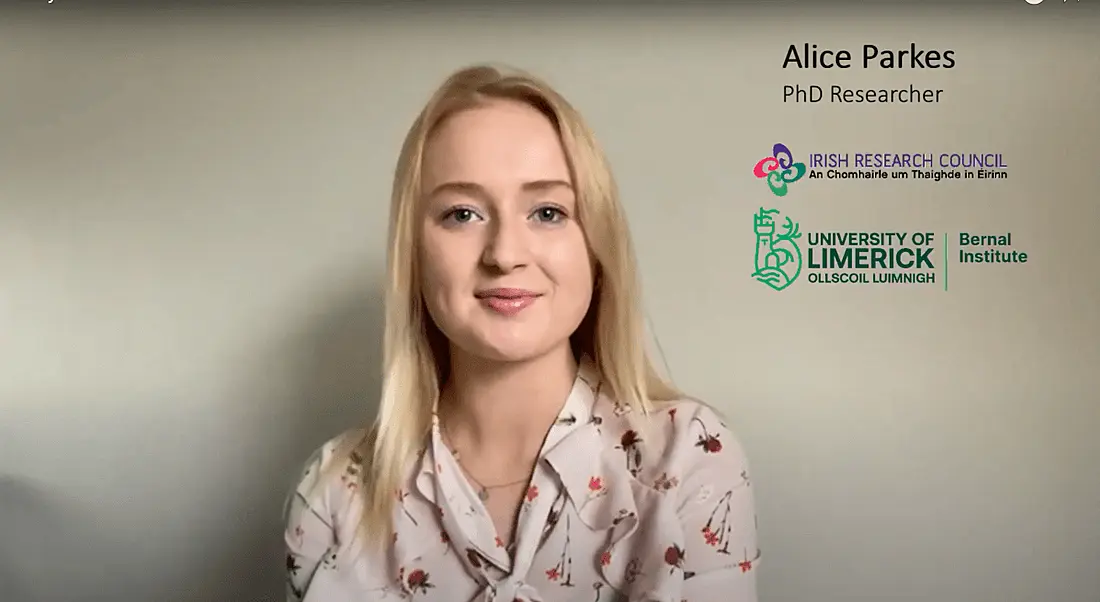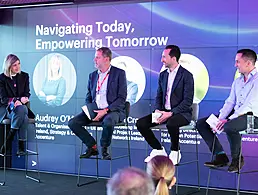A new mini documentary featuring 10 young women working in STEM wants to challenge prevailing stereotypes.
What can a career in STEM offer recent graduates? In a new mini documentary created by University of Limerick (UL) PhD candidate Alice Parkes, 10 women working in different areas of science, tech, engineering and maths share their insights.
Here, Parkes explains how and why she made the documentary, and why challenging STEM stereotypes is particularly important in addressing the industry’s ongoing gender imbalance.
‘I wanted to show young students that you can love sports, travel, surfing, gymnastics etc and still thrive in STEM courses’
– ALICE PARKES, UL
Why did you make the documentary?
I took part in the fantastic Johnson & Johnson WiSTEM2D programme at UL in 2017 to 2018. On the programme, we were each assigned great mentors and had the opportunity to network with like-minded ambitious female students in STEM.
In my time on the programme I became increasingly passionate about encouraging others into STEM. Last October, I was given a wonderful opportunity by Leisha Daly [Johnson & Johnson’s senior director for government affairs and policy in Ireland and EMEA] to speak on a panel with her at the CSR European Sustainable Development Goals Summit 2020.
I spoke about the WiSTEM2D programme and about what I think university STEM ambassadors can do to help encourage more female students into STEM. I spoke about the influence I think university graduates can have on school students making career decisions. And after the event, I wanted to act on this.
Recently, I tutored some female secondary school students who had an interest in STEM. They expressed how difficult they were finding it to make career decisions, particularly in these difficult times. They weren’t aware that there are a wide variety of courses available to them in STEM and didn’t know of other women working in STEM. I wanted to show them how many young women like them are working and thriving in such a variety of STEM careers.
What was involved in making the documentary happen?
I reached out to some like-minded women I had connected with through the WiSTEM2D programme as I believe our passion for inspiring young students like our past selves was enhanced after being inspired by our Johnson & Johnson mentors.
I asked them if they would be interested in answering some questions with a view to encouraging more female students into STEM courses. They each jumped at the opportunity and, as you can see, they sent me some insightful responses that I have no doubt will inspire so many.
I asked everyone questions that I know we would have loved to ask university STEM graduates when we were in school and I used my self-taught video-editing skills to compile the documentary, so I hope it does the inspiring contributors justice.
Elora McFall, the advocacy and outreach manager at the International Association of Physics Students, is featured and is also equally as passionate about encouraging females into STEM courses. She has kindly helped me spread the reach of this project further than originally expected.
What do you hope the documentary will achieve?
I hope this project will enable students, particularly female students, to realise that STEM is for everyone. Our aim is to show the variety within STEM and the opportunities that can open up to you when you choose STEM.
The overall goal is to do what we can to help bridge the current gender gap in STEM by encouraging the next generation of female students to choose STEM courses and careers.
I have become increasingly aware of the importance of populating the STEM pipeline with diversity as equal gender representation has proven to be essential for advancements in STEM industries.
Is showcasing more women who are working in STEM important, do you think?
I think it is important to show young students the variety of people working in STEM. It is particularly important to showcase women, as many young female students face setbacks in choosing STEM and that is the main reason why there is currently a lack of female representation in STEM.
Young students become too familiar with the stereotypes of STEM careers being introverted, being ‘too difficult’ or being for men only. For the last question of the documentary, I asked everyone what they like to do outside their STEM careers so that if students couldn’t yet relate to our passion for STEM, they could relate to what we like to do outside our interest in STEM.
I wanted to show young students that you can love sports, travel, surfing, gymnastics etc and still thrive in STEM courses, despite how stereotypes may portray us.




